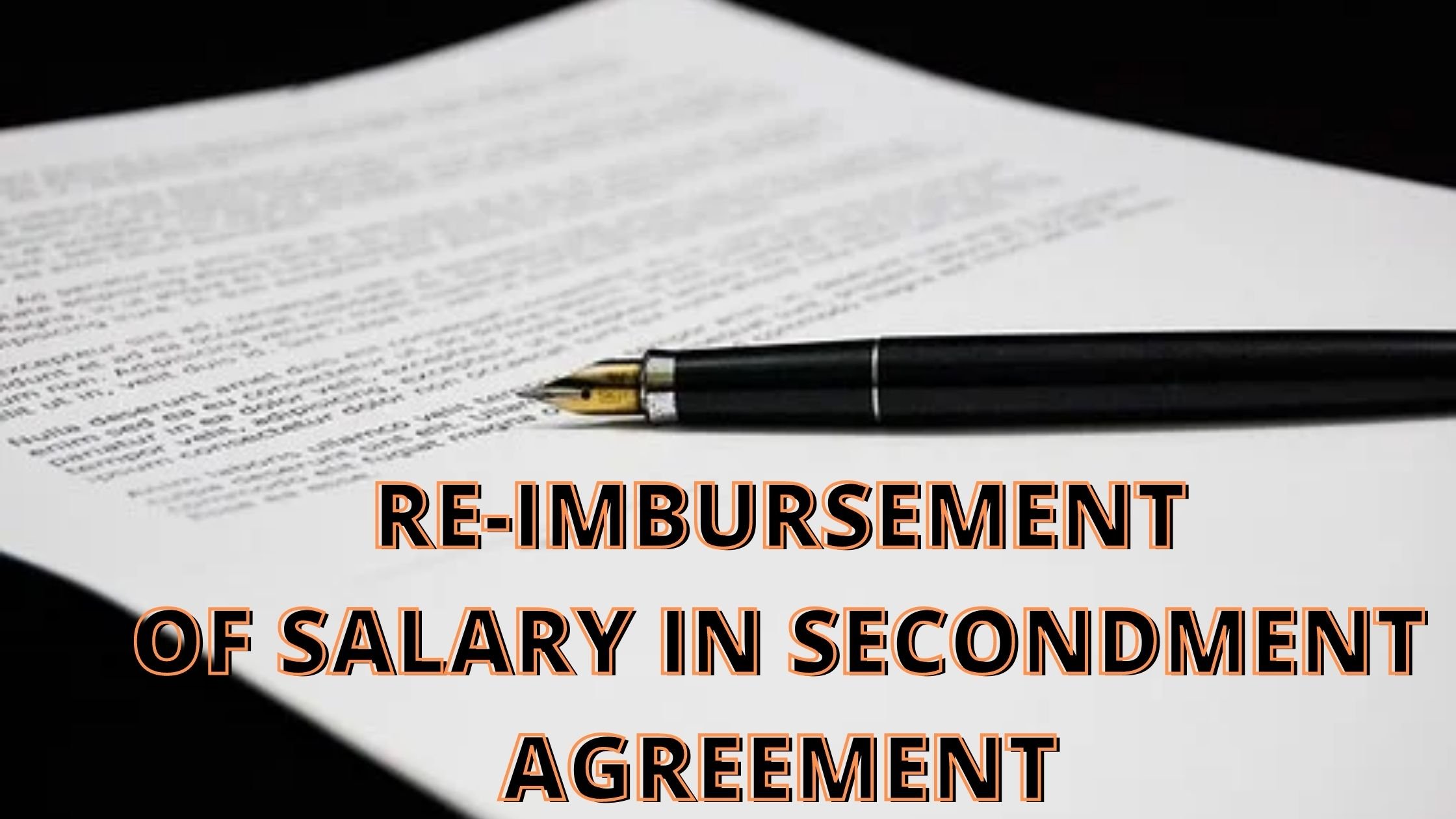REIMBURSEMENT OF SALARY IN THE SECONDMENT AGREEMENT
A secondment agreement is generally used when an individual is deported to some other country for some time and his salary is paid by the country where he is sent to. The said employee works under the control and authority of the other company. However, he is still employed in the home country as his social security part is given by the company in his home country.

REIMBURSEMENT OF SALARY IN THE SECONDMENT AGREEMENT
Introduction
A secondment agreement is generally used when an individual is deported to some other country for some time and his salary is paid by the country where he is sent to. The said employee works under the control and authority of the other company. However, he is still employed in the home country as his social security part is given by the company in his home country.
When the reimbursement of the salary is fees for Technical Services
In the much talked about case of Centrica India Offshore Pvt. Ltd. vs. CIT, the question of whether the services given by the seconders to the Indian company consisted of ‘fees for technical change’ as per the taxes in India was pointed out. The facts of the case stated that the making of the Indian entity was to do the back-office functions and to make sure about the quality marks. The parties are entered into the secondment agreement so that the seconders can stand the starting years of incorporation of the Indian company. To meet this aim, the seconders ‘made available’ their skills and abilities to the Indian entity. This fell under the scope of ‘fees for technical service’ as per the India- UK DATA and thus was made taxable in India.
The ITAT Bangalore in the case of Ms. Flughafen Zurich AG vs. Deputy Director of Income Tax stated that the reimbursement of the salary of the seconders to the taxpayers faces tax liability in India. The fact of the case says that the taxpayer was the Swiss entity which seconded its employees to the Indian entity under a secondment agreement for a limited period. The seconders have held a good managerial rank and were under the authority of the company. The taxpayers were not liable for the conduct of the seconders under the agreement. It was seen that the payments are done to the taxpayers as reimbursed salaries, qualifies as fees for technical services as these employees have attained much higher positions. And also the current status of the second employees did not change during the secondment. Therefore, the reimbursed salary costs were subject to tax in India, and the point of control and supervision was not taken up by the court.
In the same way, it was resettled in the case of Nippon Paint Pvt. Ltd. v DCIT, where the court observed that the reimbursement is taxable in India because secondees have an employer-employee relationship with the taxpayer and the temporary deployment of the secondees lead to the exchange of experience and expertise.
The ITAT Pune, in the case of M/s. Faurecia Automotive Holding v DCIT stated that as partial reimbursement of the salaries were not ‘fees for technical services’, such costs will not be taxable in India. The court held that the secondees were under the control of the entity. And also the secondees were the ultimate recipient of the salaries which was beyond the scope of fees for technical services under the provisions of the Income Tax Act.
When the Secondees Form PE in India
A service PE in general terms refers to when a foreign company is doing its work in India through its employees who have been seconded in an Indian company or in any Indian entity which is either a subsidiary of the foreign company or is wholly or partially owned and managed by the foreign company. Such income is taxable in India. It is important to know here that ‘fees for technical services’ will not be relevant and the revenues attributable to the foreign company through the service PE will be taxable in India.
The same stand can be better understood from the case of M/s DIT Mumbai vs. M/s Morgan Stanley and Co. INC where the company settled in the USA sent their employees to MSAS Co. in India. The deputation was to undertake stewardship activities in India to make sure about the quality control standards. The issue before the Supreme Court was to check whether MS Co. forms a service PE in India as per the India-US DTAA or not. It was held that MS Co. was not rendering services to MSAS and the deputed people were only doing stewardship activities to safeguard their own interests in the competitive world by making sure about the quality and security of MSAS services. So the controlling nature of work undertaken by the seconds was not taken up as the constitution of PE as per the India-US DTAA.
It can be summarized that merely giving services to an Indian company to maintain world-wise standards or aiding in their day to day work by the secondees does not consist of service PE in India. But the stand can be tweaked if they are taking any important decisions or managing the key functions of the company. It is very important to note that the interpretation of the court is inclined towards ‘substance’ then ‘form’ of the secondment.
The Indian company has the authority to end the ‘secondment agreement’ for the employment of the secondees and not their employment with the foreign company itself. This power lies solely with the foreign company which is the real or economic employer in the true sense. The secondment agreement will be economic employment as per Klaus Vogen commentary as the right to end such agreements lies with the host or the Indian company.
REFERENCES
-
taxguru.in
-
blog.ipleaders.in
-
www.mondaq.com
BY:-
Shruti Kulshrestha












